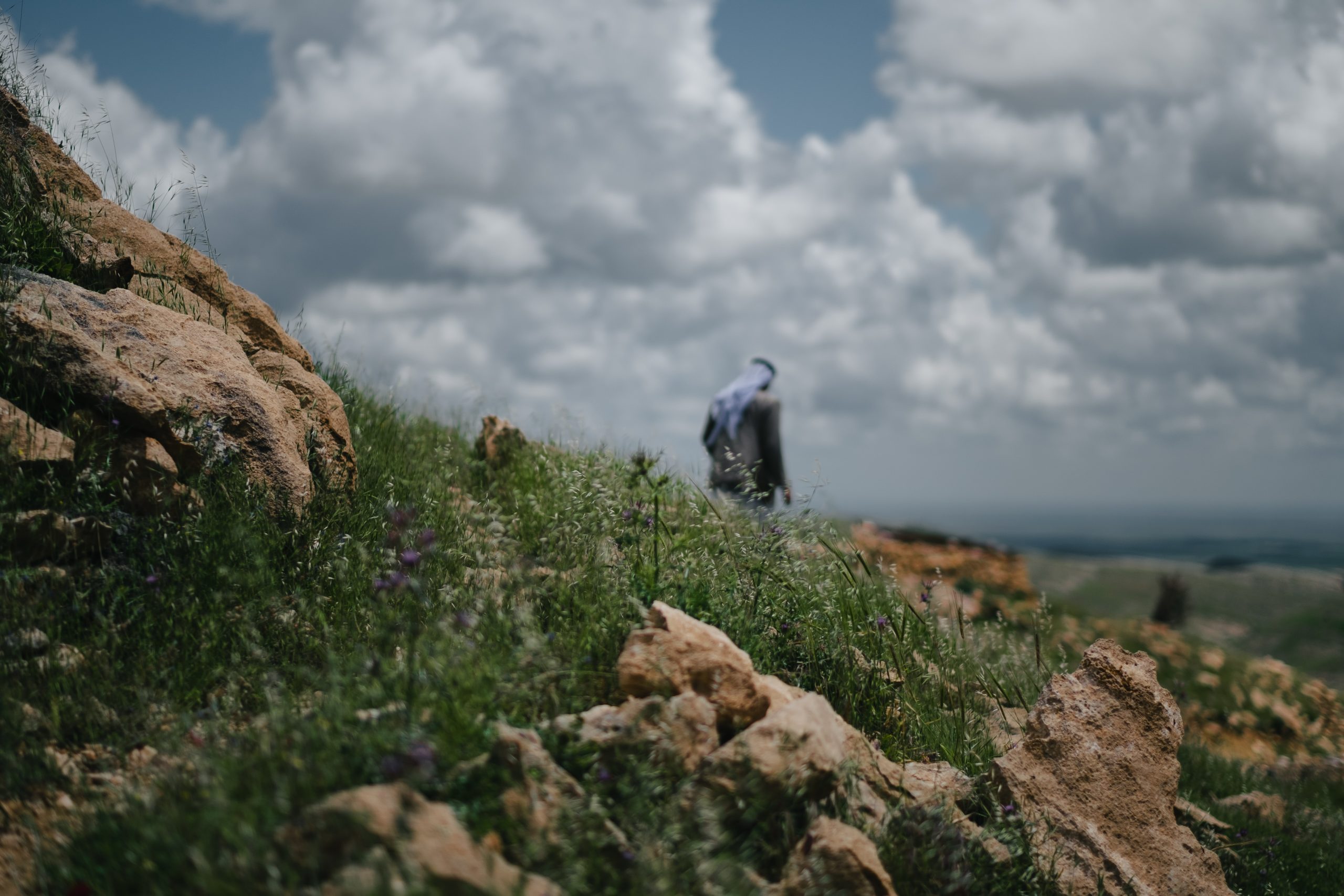The Yazidis are one of the most persecuted groups on the planet. A small ethno-religious minority from northern Iraq, the stories of our men, women and children being killed, kidnapped, and displaced by one of the world’s most brutal terror groups are well documented.
Governments around the world have met with survivors, bestowed awards and honors upon them, and promised to help. Some have done so, but our main requests remain unfulfilled: justice for the crimes committed, safe, voluntary, dignified return to areas of origin, an international rescue mission for missing Yazidis, and trauma and stabilization support for the surviving communities.
THE MOST RECENT PERSECUTION
When the Islamic State of Iraq and Syria (ISIS) overran northern Iraq in 2014, its members had a unique goal in the Yazidi homeland of Sinjar: Genocide. The extermination of the Yazidi people had been studied, planned, and justified by ISIS leaders. Yazidis were deemed as worthy of killing based on religious beliefs and identity. As the world now knows, women and girls were sold at markets as sexual slaves and young boys trained as child soldiers, with more than 6,000 women and children abducted. And as most of the world has recognized, this was genocide.
Currently, more than 2,700 Yazidis are missing. Their families know they are alive, but they can’t bring them home.
Yazidis have faced persecution for generations, but that women and children continue to be enslaved in the 21st century is a stain on all of humanity. At the time of writing, more than 2,700 Yazidis are still missing. After seven years, we know that some of the missing are no longer alive. The horror of captivity pushed many to take their own lives. Many were killed by their captors, and we hope to recover their remains someday. But some are still alive, held in Iraq, Turkey, and Syria. Their families know they are alive, but they can’t bring them home.
Human rights organizations have often warned of the sub-human conditions in al-Hol camp in northeast Syria, where many ISIS families from around the world are held by Syrian Kurdish forces. Some governments have repatriated their nationals from the camp, mostly children, who cannot be held responsible for their parents’ crimes. However, there is little mention of finding and rescuing Yazidis in that same camp. Yazidis are still held hostage by those who enslaved them. We know they are there, and several have escaped. Yet, there is no international help and no coordinated campaign to rescue our missing from al-Hol or elsewhere.
Earlier this year, the Iraqi government bussed almost 100 ISIS families from al-Hol camp back to Iraq, driving past the mass graves where the bones of Yazidis lie exposed and unprotected. One female ISIS member told the media proudly that her husband and brother are ISIS members. There is no regret or remorse, even for her husband’s purchase and rape of a Yazidi “slave.” And while the Iraqi parliament passed landmark legislation in March to compensate survivors of ISIS atrocities, and Yazidis in particular, it is unclear whether there will be dedicated funding to actually implement the law.
ACCOUNTABILITY IN GERMANY
In recent months, perpetrators of the genocide have begun to face justice in Germany to answer for their crimes. In a landmark case, Jennifer Wenisch, a German convert to Islam who was part of ISIS “morality” police in Mosul, was sentenced to 10 years in prison. She and her husband chained a Yazidi girl, five years old, to a fence in the heat, where she died of thirst. Another woman, Omaima Abdi, was given an additional six months in prison after admitting she owned Yazidi slaves.
Germany has taken unprecedented steps to prosecute ISIS members, constructing structural investigations of the ISIS crimes against Yazidis, using the tool of universal jurisdiction to pursue suspects of international crimes. Much of the credit for this effort goes to Christian Ritscher, who was the Head of Germany’s War Crimes Unit and is now leading the Investigative Team to Promote Accountability for Crimes Committed by Da’esh/ISIL (UNITAD), the UN’s investigative body into ISIS crimes.
Meanwhile, many Yazidis are still not safe, and remain displaced in terrible conditions. While convicted ISIS member Wenisch and others will be reunited with their families in a decade or less, many Yazidis do not have that luxury. Without security and justice, we won’t be able to move forward. Some Yazidis have risked their lives and savings, traveling to Belarus with the false hope of reaching the European Union. Desperation has become the status quo.
RESCUING THE MISSING
Yazidis cannot travel to places where we know our missing loved ones are being held. We cannot go to Anbar, Idlib, or parts of Turkey, where some missing Yazidis are still held. Yazidis displaced in IDP camps cannot simply leave and look for their family. If we could, it would have happened years ago. Our own people, scarred by genocide and the trauma of what happened in 2014, have had to bear the burden of rescuing our loved ones, and it cannot continue any longer.
The international coalition is in Iraq and Syria with the stated goal of defeating ISIS. The coalition has unmatched information and intelligence about ISIS members and supporters, their movements, and their actions. We urge the coalition to include the rescue of missing Yazidis as a priority of the mission. The Yazidi Genocide will not be over until missing Yazidis are identified and rescued.
Pari Ibrahim is Founder and Executive Director of the Free Yezidi Foundation, an women-led Yazidi civil society organization with charity status in Iraq, the Netherlands, and the United States.





















